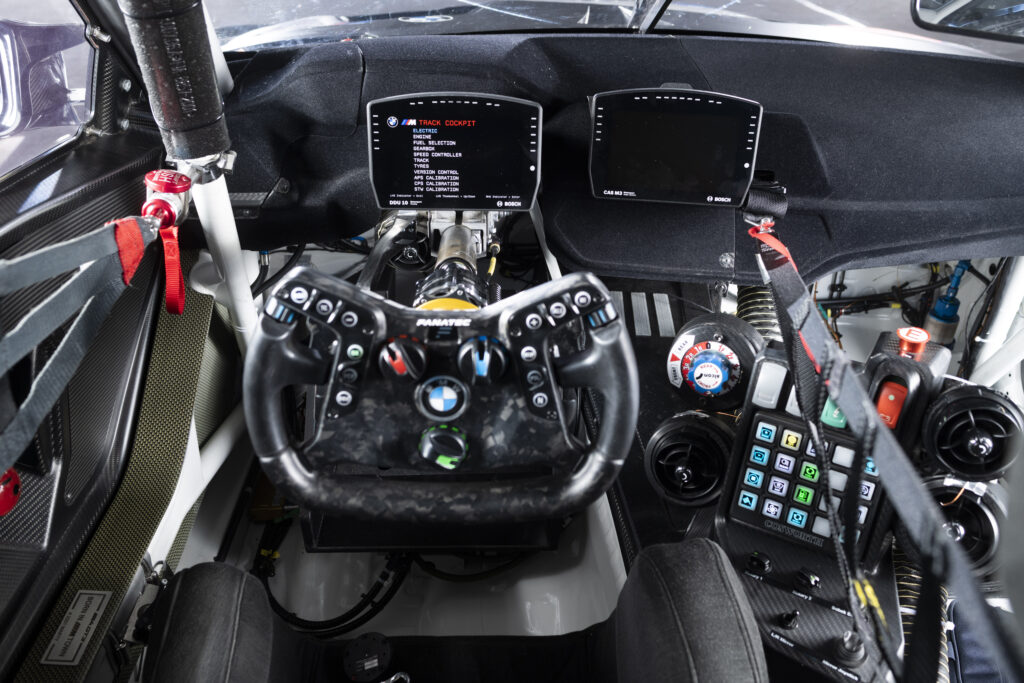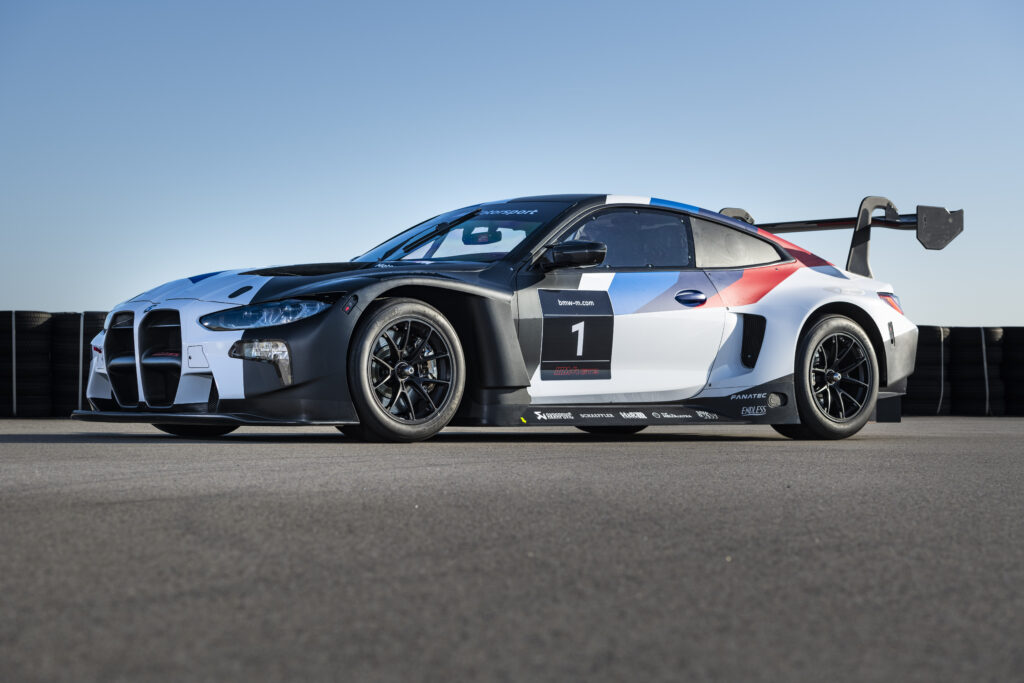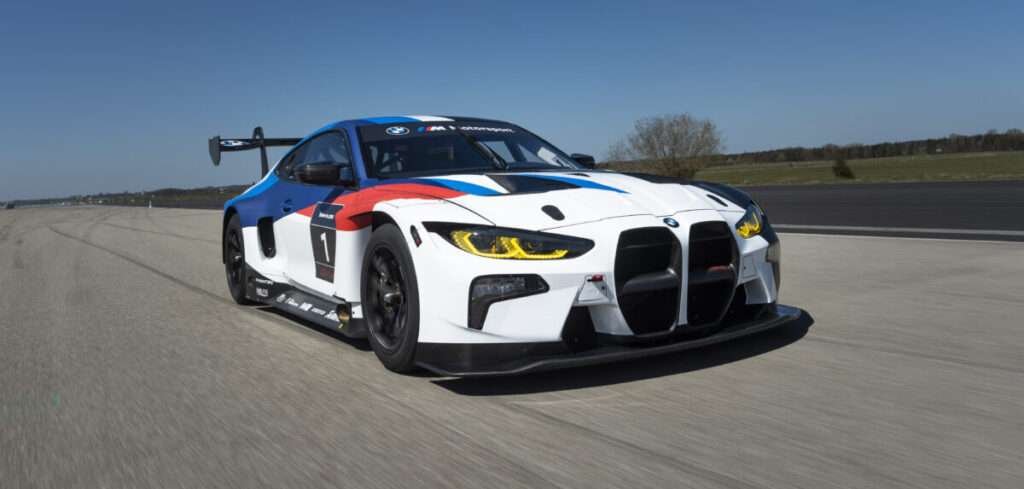BMW has officially unveiled its M4 GT3, which has been in development since early 2019 when the first simulation studies were undertaken on the car that is to replace the M6 GT3. BMW says its goal has been to significantly reduce lifecycle costs and maintenance expenditure for the M4 compared with its predecessor.
The new car’s engine, designated the P58, first ran on the test bench in February 2019, followed by 60% scale wind tunnel running starting in the summer. The first full test chassis rolled off the production line at the start of 2020 and the prototype turned its wheels in July last year, with BMW undertaking a punishing test schedule in the intervening months, clocking up over 14,000km of running.
The M4 GT3 features a development of the road car’s 3.0-liter engine, the most powerful roadgoing straight-six it has produced (510bhp) and also the most potent track version since the M1 Group 5 racers of the 1980s, making 590bhp and 700Nm of torque in GT3 trim. The race version retains a considerable number of standard production parts, including the block and head, crankshaft and connecting rods and pistons. The main differences are a revised induction system and the use of dry sump lubrication.
According to the company, there was close collaboration between BMW M Motorsport, the racing outfit, and the production department at BMW M, with the cars assembled directly at the BMW M factory in Garching, near Munich, Germany. The use of the BMW Group’s test facilities provided some useful advantages. For example, various whole-car and component test benches were available to measure performance, vibrations, efficiency and roll resistance.

“The development work on the BMW M4 GT3 is now on the finishing straight, and the 24-hour race at the Nürburgring is the perfect stage on which to present the car in its BMW M Motorsport design and thus to herald the final phase leading up to the first race outings,” said Markus Flasch, CEO of BMW M GmbH. “The new BMW M4 Competition provides the perfect basis for the BMW M4 GT3, whose engine was designed from the outset for use at the racetrack. This underlines how road car and race car development always go hand in hand at BMW M GmbH. The new car offers state-of-the-art technology, thanks to our technology partners.”
Throughout the final stages of development, BMW says its engineers worked hard to improve the driveability and reliability of the car. It claims that the biggest improvements compared with the BMW M6 GT3 are in three areas: driveability, cost-efficiency and operation. For example, the M4’s handling and cockpit equipment are more comfortable for amateur drivers, and the car is easier on the tires and offers greater consistency. Far lower lifecycle costs and longer maintenance intervals for the engine and transmission have also been achieved. Meanwhile, operating the car has been made easier by the fact that many basic settings can be configured directly via the steering wheel, without having to connect an external laptop.
BMW notes that the purchase price of the BMW M4 GT3 begins at €415,000 (US$502,437) net – €4,000 (US$4,843) less than the price of the BMW M6 GT3, and similar to that of its competition. A ‘Competition Package’ is available as an ex-factory option for an additional charge. This provides features specifically for endurance racing, including additional headlights, spring travel sensors, a rear radar/camera system and a system for measuring tire pressure/temperature. The package also includes an exclusive training day in an in-house BMW M4 GT3 simulator.




